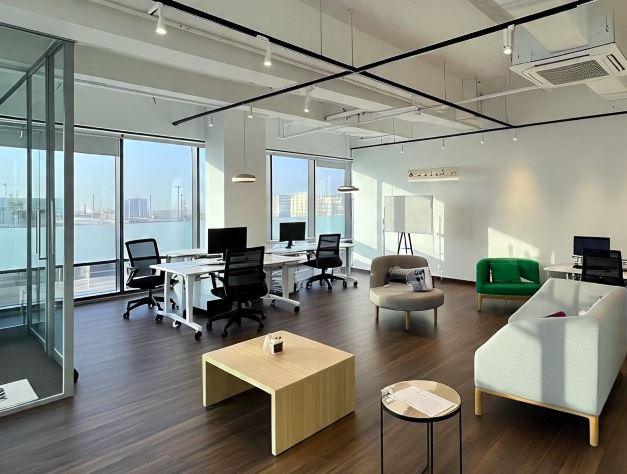How Do I Lease an Office for Rent in Qatar as a Foreigner?
Leasing an office in Qatar as a foreigner might seem complicated at first glance, but the process has become significantly smoother in recent years thanks to Qatar’s pro-business regulations, especially in free zones like Qatar Financial Centre (QFC) and Qatar Free Zones Authority (QFZA). The country is actively encouraging foreign investment, and leasing office space is an essential part of setting up or expanding a business presence in Qatar. Whether you’re an entrepreneur looking to establish a startup or a multinational expanding into the Gulf region, the Qatari real estate market provides various options to suit your business needs. Here’s a detailed guide on how to lease an office for rent in Qatar as a foreigner.
Foreigners typically cannot lease office space in their individual capacity unless they are doing so under a registered business entity. Therefore, it’s essential to either register a new company or partner with a local entity. The most popular legal structures include Limited Liability Companies (LLCs), Branch Offices, Representative Offices, or companies registered within QFC or QFZA, which allow 100% foreign ownership. Free zones such as QFC offer flexible licensing for various sectors, making them an attractive option for many international firms.
Once you’ve established or registered your company, the next step is choosing the right location. West Bay, Lusail, and The Pearl are high-end commercial zones with modern office towers, ideal for businesses that want a premium address. For more budget-conscious setups, places like Al Sadd and Salwa Road offer practical, well-connected office spaces at competitive rates. If you’re targeting international clientele or want proximity to government offices and embassies, West Bay is a strategic choice. Lusail, a newly developed smart city, is also becoming a popular destination due to its futuristic infrastructure and business-friendly environment.
Shell-and-core offices are unfinished and give you total freedom to design the interior according to your branding and functional needs, although this will come with additional fit-out costs. Fully furnished offices are move-in ready and ideal for companies looking to set up operations quickly. Also, you need to consider whether you require a private office, co-working space, or an entire floor, depending on the size and scope of your business operations.
Once you’ve shortlisted potential properties, it’s time to get into the legal and financial details. Leasing an office space typically involves signing a rental contract that outlines all terms, including lease duration, monthly rent, payment schedule, and responsibilities of both tenant and landlord. In most cases, landlords will ask for a 12-month post-dated cheque or payment in quarterly installments. It is strongly advised to have a lawyer or legal consultant review the lease contract before signing to ensure it complies with Qatari commercial rental laws and protects your interests.
These include a valid trade license, company registration documents, the owner’s or manager’s QID (Qatar ID), and possibly a tenancy contract attestation.If you are leasing through a free zone, the regulatory authority (like QFC or QFZA) often helps streamline this process and may offer lease packages with in-house legal support.
After the lease is signed, the tenancy contract must be registered with the relevant municipal authority, usually the Ministry of Municipality or Baladiya. This registration is crucial for getting utility connections and official approvals for your business location. If you’re operating under QFC or QFZA, these authorities will usually handle the registration process for you as part of their business setup services.
One important aspect to consider is the cost of leasing an office in Qatar. For example, premium offices in West Bay can range from QAR 80 to QAR 150 per square meter per month, while mid-range offices in other parts of Doha might cost between QAR 40 and QAR 70 per square meter. Most leases are negotiated on an annual basis, so budget planning is essential. Keep in mind that in addition to rent, you may need to pay for utilities, maintenance, internet, parking, and other operating expenses.
Another option worth exploring is serviced office providers and co-working spaces. Providers like Regus, Servcorp, and other local firms offer fully equipped offices with flexible lease terms, shared facilities, and administrative support, which reduces the burden of setting up infrastructure. Co-working hubs also provide opportunities for networking and collaboration, making them an ideal choice for entrepreneurs looking to build connections in the local business community.
Language is rarely a barrier when leasing office space in Qatar, especially in Doha. Most landlords, agents, and property managers speak English fluently. However, having a local real estate agent or business consultant guide you through the leasing process can be immensely helpful. They can assist in negotiations, provide insights into the market, and help ensure compliance with local regulations.
Finally, think long-term when leasing office space in Qatar. Consider future business growth, expansion plans, and possible relocation needs. Signing a lease with flexible exit clauses or options to upgrade your space within the same building can save you time and money down the road. Also, always clarify issues like service charges, maintenance responsibilities, parking facilities, and permissions for branding and signage upfront.
Leasing an office for rent in Qatar as a foreigner is entirely feasible with the right planning and guidance. The country’s openness to international investment, coupled with modern infrastructure and streamlined regulations in free zones, makes it an attractive destination for businesses from all over the world. Whether you choose a high-rise office in a prime location or a practical space in an emerging district, what matters most is aligning your office lease with your business goals and ensuring compliance with local laws. By doing so, you’ll be well-positioned to operate efficiently and thrive in Qatar’s growing economy.

